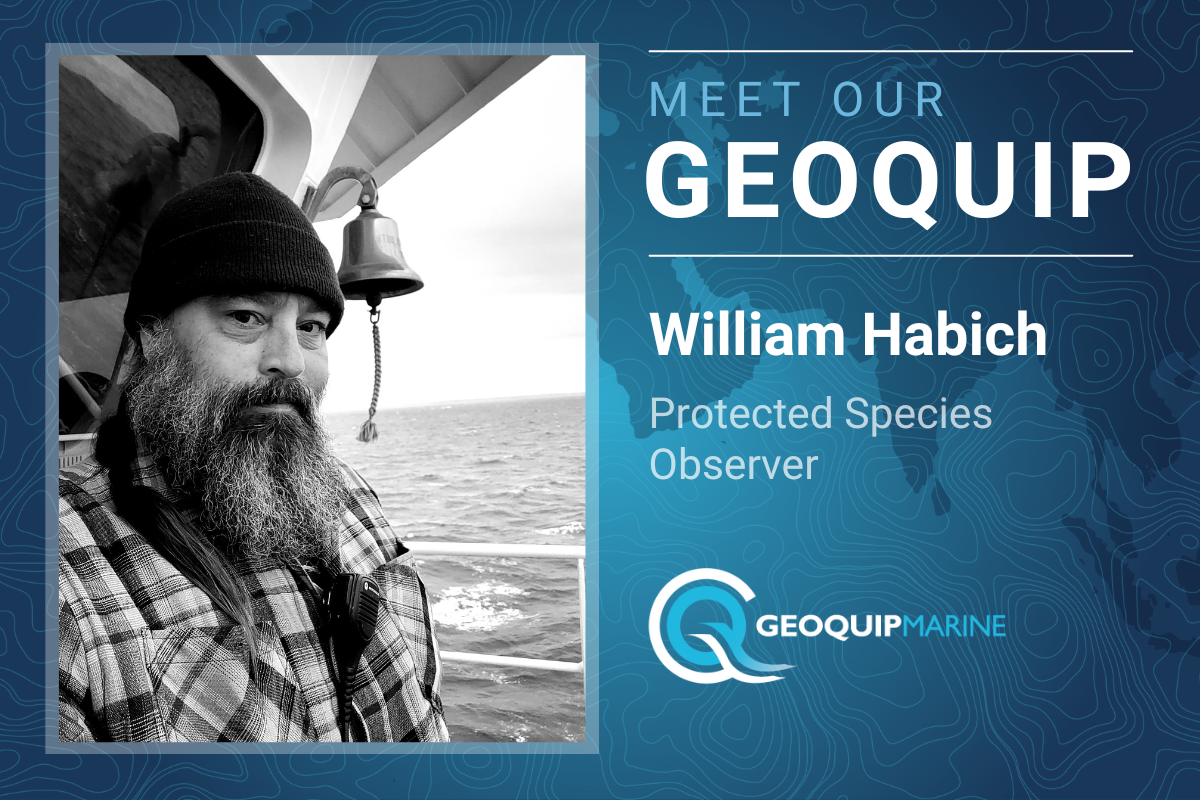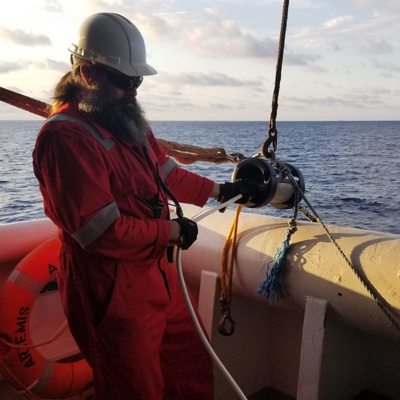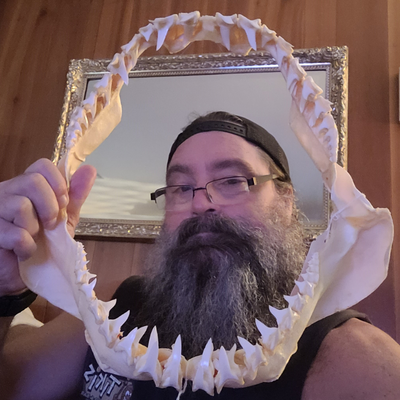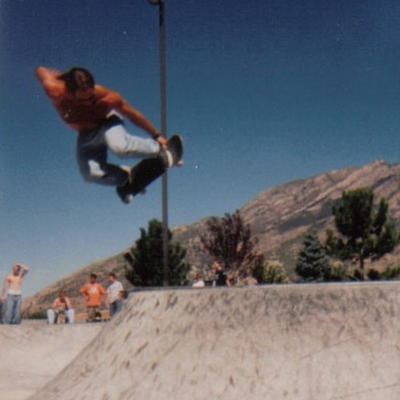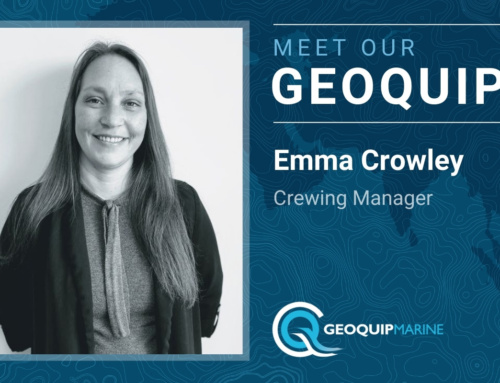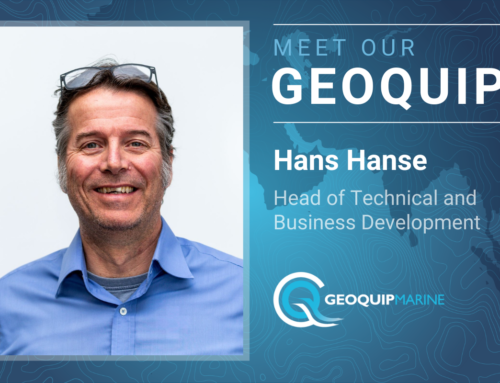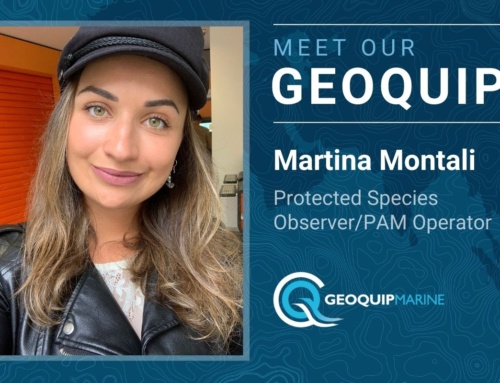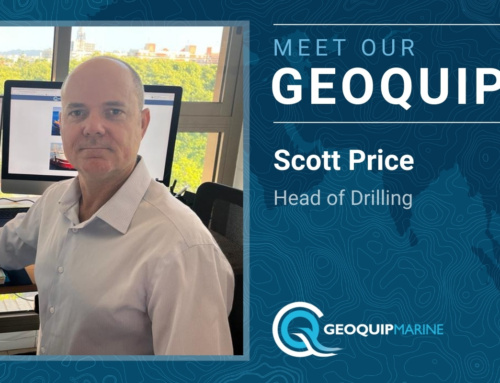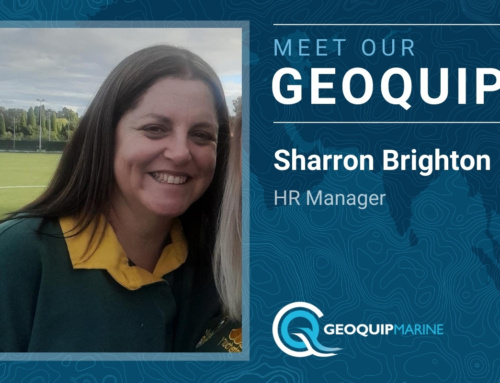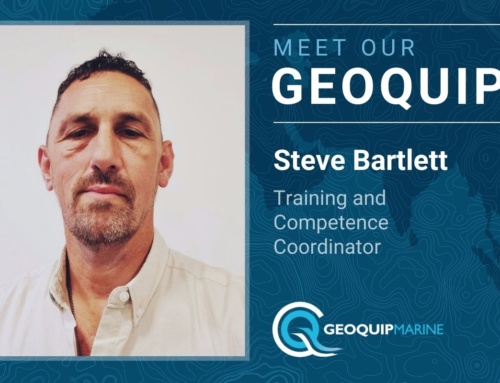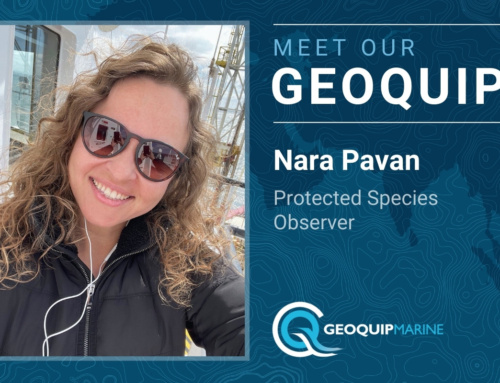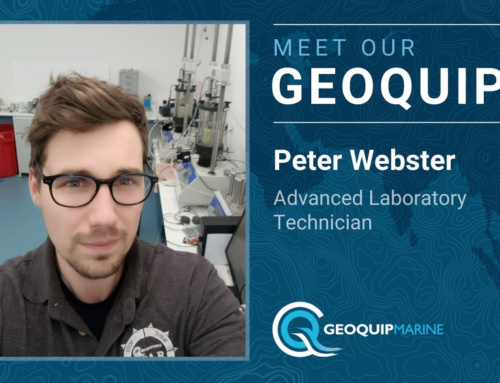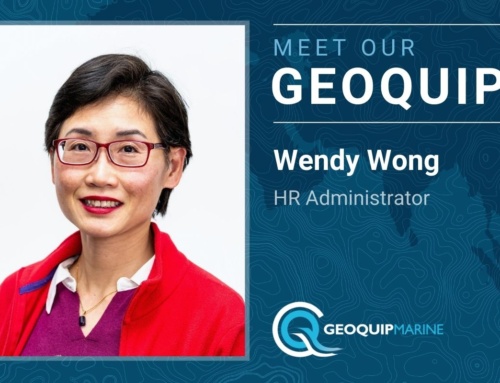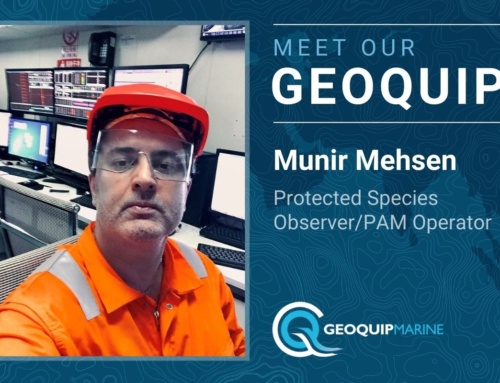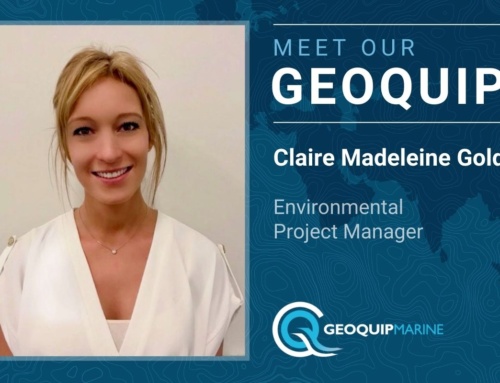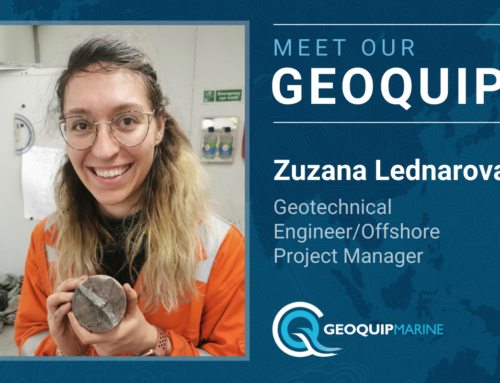Welcome to Meet Our Geoquip, our regular blog series featuring employee insights from across Geoquip Marine. This regular feature is an opportunity for the many diverse voices working in both on offshore and onshore teams to share their story, provide insights into their role in the company and offer advice to those looking to begin or continue their career in geotechnical engineering.
Today’s post features William Habich, a Protected Species Observer and PAM Operator who works offshore on one of our integrated geotechnical survey vessels. We would like to thank William for sharing his story with us.
Can you tell us about your role at Geoquip Marine?
I am a Protected Species Observer and a PAM (Passive Acoustic Monitoring) Operator. Primarily, my job consists of monitoring the exclusion zones around and in proximity to the vessel for marine mammals, turtles, and other protected species prior to and during geotechnical operations.
I continuously maintain contact with the bridge and survey crew to ensure that protected species are not in the immediate survey area so that operations may begin and continue. I also communicate with the FLO (Fisheries Liaison Officer) regarding the presence of fishing gear.
What inspired you to follow a career path into the geotechnical surveying industry?
My love of the ocean was the catalyst that led me to the geotechnical surveying industry. I began my career as a commercial fisherman to be completely honest. It began long ago, in a galaxy far, far away… Florida!! It has taken me to many different commercial fisheries in Hawaii, California, the Gulf of Mexico, and all along the east coast of the US. During this time, I saw the need for better biological data collection of commercial fishing, protected species interactions, and providing the best data possible to the agencies responsible.
I knew I was able to do much more to be a part of the ocean and the industry that I loved, and that led me to obtain both a BSc and MSc in Biology from the University of Central Florida. My priority was to do what I could to ensure fresh seafood, provided by local fishermen, served in local restaurants, the quality was consistent to international markets, and to learn as much as I could about all aspects of ocean industry.
My biological career began as a fisheries observer contracted by NOAA fisheries for many years, in many parts of the US. This transitioned to becoming a principal investigator for the Florida Fish and Wildlife Conservation Commission. I wished to try to use the information I had learned to focus on my home-state waters that made me choose this in the beginning! The estuary, the offshore environment, the fisheries, helping the commercial and recreational fishermen, as well as the people who lived on the island where I grew up……seeing the larger picture and how I was able to help in some way!
My supervisor at FWC introduced me to the idea of the oil and gas industry and biological species observing. I was able to work throughout the world doing this. When I learned of the offshore windfarm industry starting in this country, I jumped at the chance to participate in an industry developing renewable energy.
What do you enjoy most about working offshore as a Protected Species Observer?
Professionally speaking… starting in oil and gas, then geophysical surveying then currently working in geotechnical surveying. I have been learning how all these pieces fit together. From the commercial fisherman, to the geophysical and geotechnical surveys, to the companies developing the infrastructure necessary, to the consumers who will be affected, I’ve been learning so much and I enjoy all the aspects, especially the intricacies of the geotechnical portion.
Personally speaking, I enjoy my job on the ocean. It brings a peaceful reflection to my life. More than that, I enjoy meeting new people, from different backgrounds, in different positions, learning from them and how we can possibly be so different and have come together to be so similar on these vessels and having a great time working together!
What are the key skills or attributes you need to be successful in an environmentally focused role such as yours?
Never give up! You kind of need a thick skin at times. You are working as an offshore team for something much bigger than yourself. There will be many people, from many backgrounds. Many may have a different culture than what you have experienced so far. Embrace it! Enjoy it! Learn from it! You may just meet some of the best people you ever have in your life! We are all working together as a team, and we all hope to do well as a team, for a common goal as a team, no matter where we are from.
What advice would you give someone who is considering a career with Geoquip Marine?
Do your homework. There are many different opportunities with Geoquip Marine out there, as there are many different aspects of surveying. It all depends on which direction you would like to go. I have been working as a marine scientist for 22 years. Geoquip Marine is very much a company that I enjoy working with, and I hope to do so for a long time. As a PSO, my OPM Zuzana Lednarova and team lead Shannon Cremeans suggested that I be considered for lab employment. It is good to know that you have an option to learn more, to do more, to potentially be employed more as a part of a team, to be cross trained…and have your desire be recognised.
Finally, do you have any hobbies or passions outside of your work? Please tell us about them.
When I am on land, I enjoy fishing, shrimping, skateboarding, snowboarding; surfing and skimboarding on occasion, and riding my bike on the beach. My true passion though is shark dentition. I did once have a very extensive collection of shark jaws and biological samples… which I am currently rebuilding, for the people of Cocoa Beach to be put in a local museum.
Thank you for sharing your story with us, William!
If you would like to learn more about our offshore geotechnical site investigations, click here. You can also visit our Careers area and browse our latest vacancies and career opportunities.


